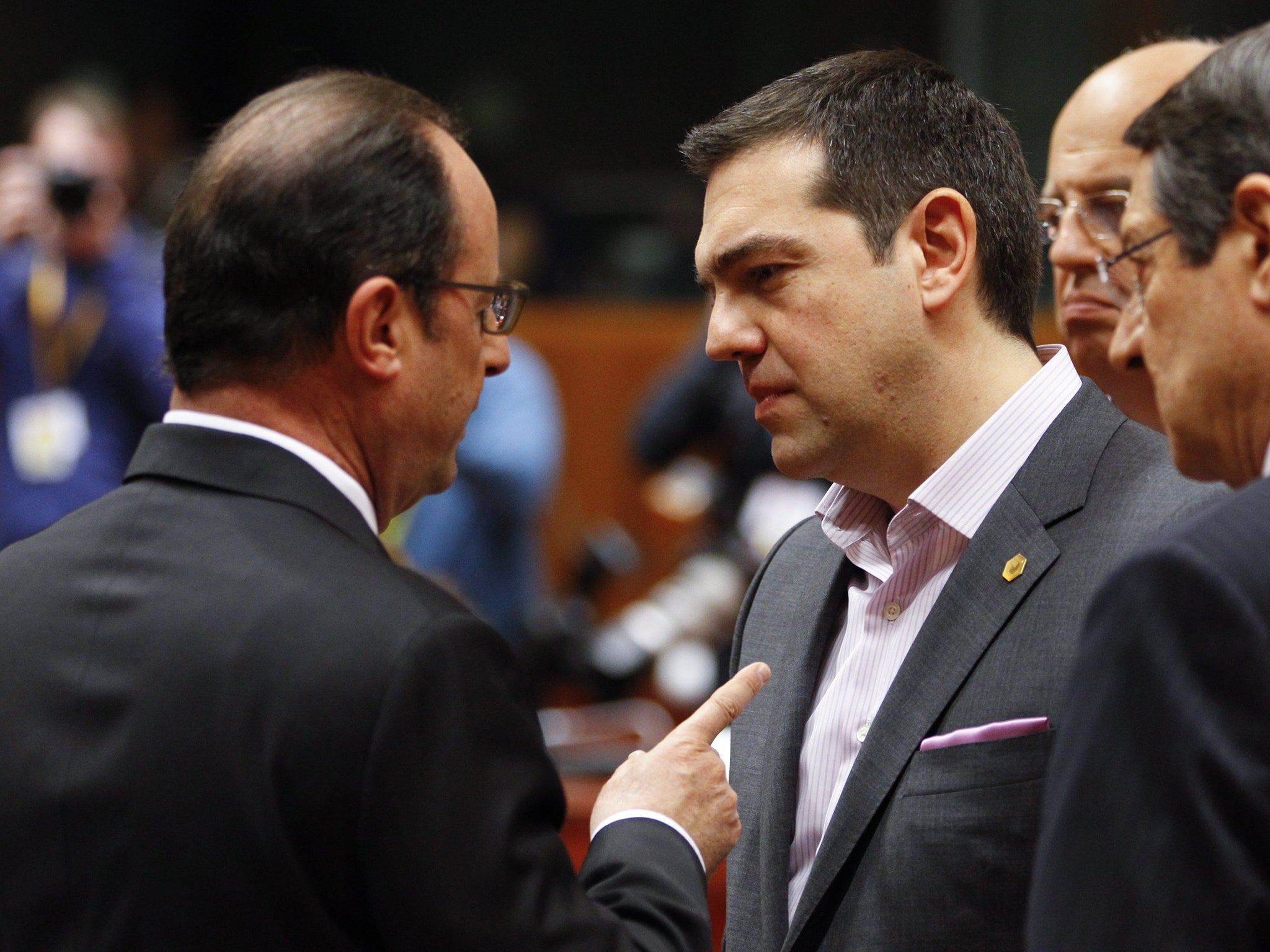EU summit begins in acrimony with Greek PM told to implement reform
Angela Merkel: “Don’t expect a solution, don’t expect a breakthrough”

Your support helps us to tell the story
From reproductive rights to climate change to Big Tech, The Independent is on the ground when the story is developing. Whether it's investigating the financials of Elon Musk's pro-Trump PAC or producing our latest documentary, 'The A Word', which shines a light on the American women fighting for reproductive rights, we know how important it is to parse out the facts from the messaging.
At such a critical moment in US history, we need reporters on the ground. Your donation allows us to keep sending journalists to speak to both sides of the story.
The Independent is trusted by Americans across the entire political spectrum. And unlike many other quality news outlets, we choose not to lock Americans out of our reporting and analysis with paywalls. We believe quality journalism should be available to everyone, paid for by those who can afford it.
Your support makes all the difference.Greece’s Prime Minister arrived in Brussels today to try and convince his EU partners to unlock more emergency funding, but instead received a dressing-down from leaders unhappy with the increasingly combative rhetoric and lack of reform from Athens.
With more outstanding debts due today and warnings that Greece could go bankrupt within weeks, the Prime Minister Alexis Tsipras had called for talks on the sidelines of a European Union summit scheduled in Brussels yesterday and today. But Angela Merkel, the German Chancellor, warned: “Don’t expect a solution, don’t expect a breakthrough”. Instead the leaders looked set to use the meeting late this evening between Mr Tsipras, Ms Merkel, the French President François Hollande, and the leaders of the EU institutions to press the Greek side to implement economic reform. “I fear it is necessary to inform the Greeks that commitments have to be adhered to,” said the Austrian Chancellor, Werner Faymann.
Greece and the 18 other members of the eurozone reached a deal on 20 February to extend Greece’s bailout programme by four months, after Mr Tsipras won elections in January with a promise to renegotiate the austerity conditions on the €240bn the country received to save it from bankruptcy. Greece was then expected to return with a set of proposals on reform. But it has so far failed to come up with terms acceptable to its creditors, meaning its access to funds remains limited.
The Greek government has stirred up tensions with Germany by demanding reparations from Berlin for Nazi crimes committed during the Second World War. The Greek Defence Minister also sparked outcry earlier this month when he threatened to send “a wave of economic migrants” into the rest of the EU if it is allowed to go bust, including potential fighters with the Isis extremist group
The Irish Taoiseach, Enda Kenny, said that while there was a willingness to give Greece “time to come forward with solutions”, such comments were unhelpful. “There is a difference between political disagreement and threats to release jihadists in Europe” said Mr Kenny.
It also emerged that a copy of the original bailout document had disappeared from government offices. The Greek Finance Minister, Yanis Varoufakis, blamed the mishap on a predecessor taking it with them when they left.
Join our commenting forum
Join thought-provoking conversations, follow other Independent readers and see their replies
Comments